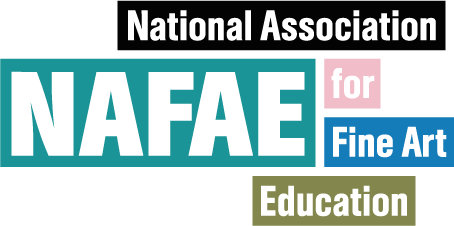Call for papers: ‘Revisiting 'The Fine Art Graduate'
NAFAE Annual Conference 2023
‘Revisiting 'The Fine Art Graduate': The 'issue' of employability for fine art and other art and design graduates
Date: Friday 15th September
Venue: London School of Mosaic, NW3 2HP London
Event link
The 'issue' of employability for fine art and other art and design graduates has accompanied our developments in arts education for a considerable time. There is evidence of lots of good practice in developing and making evident 'employability skills' for our graduates, that we should acknowledge and celebrate. However, the 'turn' to 'the professional employment of graduates, by the Office for Students, makes the issue an urgent one for fine art education to address. The Office for Students now sets part of conditions for registration that "The provider must deliver successful outcomes for all of its students, which are recognised and valued by employers, and/or enable further study." This puts a direct pressure on fine art and related subjects, with a potentially much greater 'threat' and greater challenge.
Considering the pressures driven by metrics surrounding fine art and employability as a topic and the context of the ‘Office for Students’ coming down on subjects which do not offer immediate employment (within 15 months of graduation). What is fine art's reaction to this complex situation and strategies that can be applied to this? Is this about 'fight' or 'flight'-as it were? How do we make the case for fine art education's value in the increasingly starker context of what can be described as 'the monetization of higher education'? How do we still ensure our students do benefit in all ways and senses from the core ‘fine art’ education we seek to provide?
This year’s NAFAE annual conference seeks to share existing good practice, initiatives and solutions that have been already put in place by colleagues nationally in a spirit of collegiality. The aim is to to turn what could be perceived as a challenge presented by institutional pressures around employability into an opportunity for acknowledging how much the fine art subject area is proactively responding in ways that help individual students and society more generally.
Conference sub-streams:
Curriculum: Projects or examples of good practice in which employability and wider transferable skills are explored in the curriculum and beyond. What can Higher Education fine art courses learn from alternative provisions (galleries, alternative art schools, etc.) available to professional practice?
Self-Awareness: How are the often tacit skills and knowledge of a Fine Art graduate made visible to students? How do they speak to their skills? What knowledge is transferable?
Ecology: Importance of the local community/economy in fine art employment opportunities. How does the time it often takes for a fine art graduate to ‘find their place’ that is at odds with an 18 month cut-off for ‘Office for Students’? What ‘fertile’ ecology does a fine art graduate actually need and how does the curriculum prepare a student for this?
Metrics: How might we respond to the metrics? Are there optimum strategies to share and adopt as well as share with our students? What are ways to subvert a metric culture for ways that are beneficial to the fine art subject area and to Office for Students directives?
What contributions we are looking for:
Presentations of 15-20 minutes that broadly focus upon aspects that fall under one of the sub-streams above. Presenters can include those involved in fine arts and related or interdisciplinary education within formal HE or 'alternative' art education, specific education for employment, studio providers/users, alumni, current students, or a combination of these.
Please provide the following for your proposal:
Title:
Type of contribution (paper/presentation/provocations of 15-20 minutes) :
Technical requirements:
Abstract of 250-400 words:
Name, role, institution and contact email:
Proposals should be submitted to: admin@nafae.org.uk no later than 1st May 2023. All proposals will be peer reviewed and response to abstracts will be provided by 26th May 2023.

